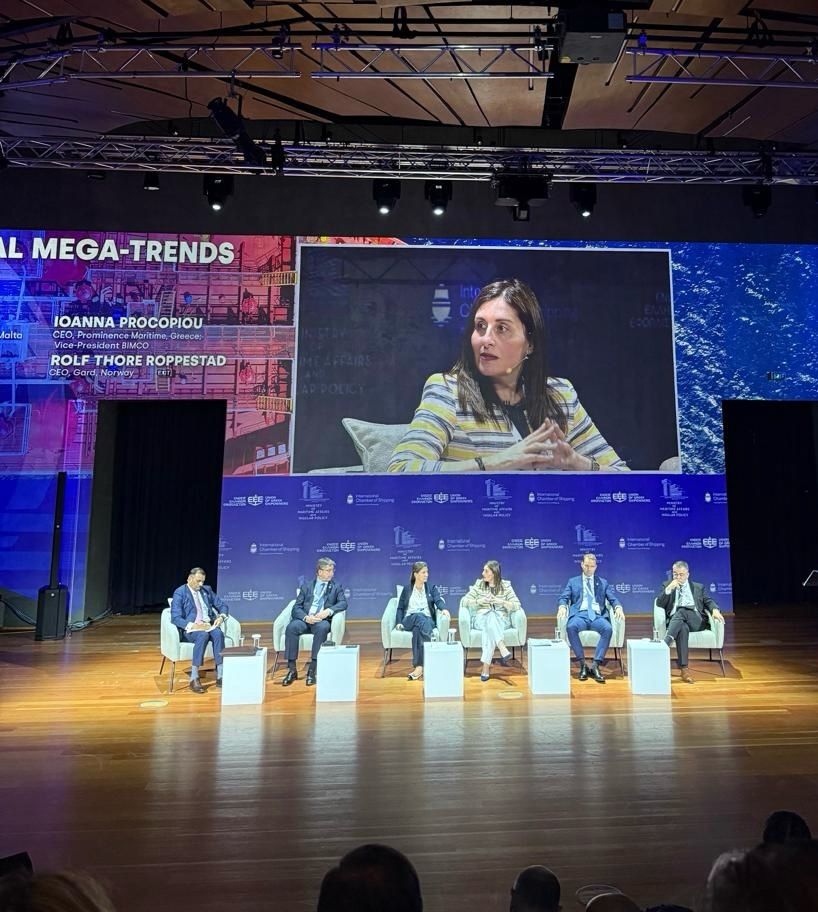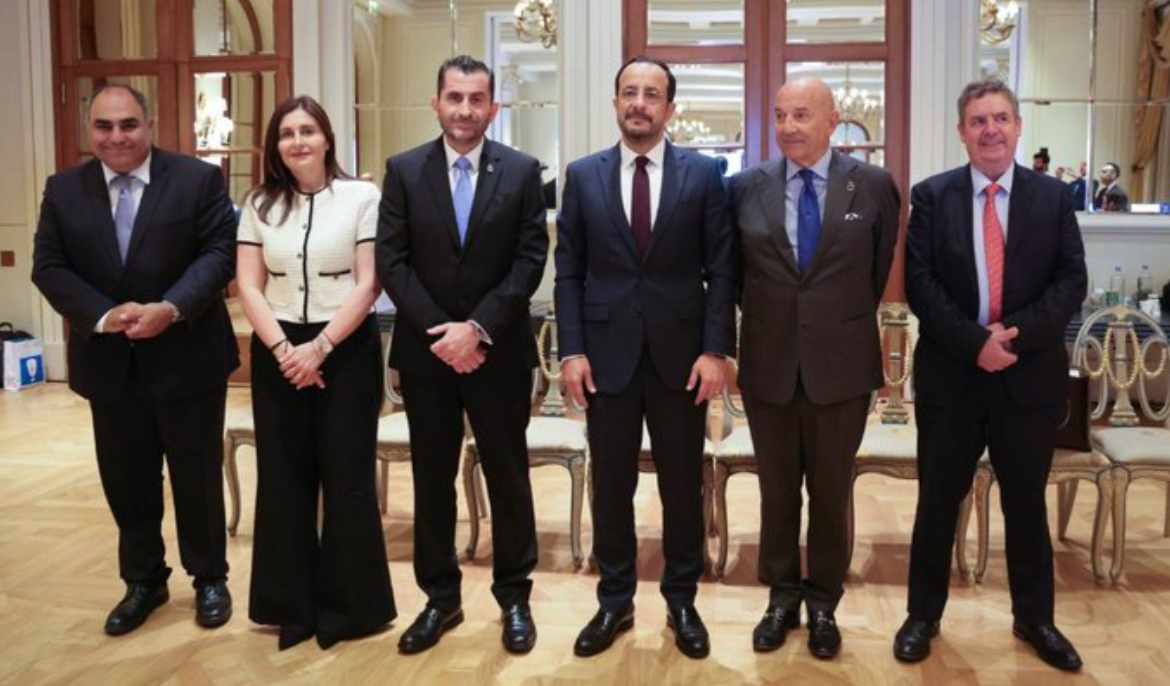Over 350 senior delegates from more than 30 countries gathered in Athens this week for the high-level ‘Shaping the Future of Shipping Summit’.
The event was jointly hosted by the Ministry of Maritime Affairs and Insular Policy of Greece, the International Chamber of Shipping (ICS), and the Union of Greek Shipowners (UGS).
The summit brought together leading policymakers and chief executives from the maritime and energy sectors to address the shifting geopolitical landscape, regulatory fragmentation, decarbonisation strategies, and the urgent need to invest in seafarer training and recruitment to safeguard the future of global trade.
Ministerial attendees included Prime Minister of the Greece Kyriakos Mitsotakis, Greek Maritime Minister Vassilis Kikilias, European Commissioner for Sustainable Transport and Tourism Apostolos Tzitzikostas, and top officials from China, Egypt, Malta and Cyprus.
The secretary general of the International Maritime Organisation (IMO), Arsenio Dominguez, also addressed participants through a video message.
Speaking at the opening, Kikilias underlined that “only through teamwork will we ensure the future of shipping. Governments and shipping communities need to work side by side in order to achieve this.”
He noted that Greek shipping remains a strategic pillar not only for Greece but also for Europe and the global economy, stressing the need for “global rules and the level playing field it deserves.”
Cyprus was represented by Deputy Shipping Minister Marina Hadjimanolis, who joined the ministerial panel discussion on global maritime challenges.
“It was with great pleasure that I participated today in the Ministerial panel within the framework of the Shaping the Future of Shipping Summit 2025, jointly organised by the Ministry of Shipping and Insular Policy of Greece, the ICS and the UGS,” she said.
During the session, she spoke of the current situation in the sector and highlighted the need for collective actions to achieve sustainable development.
She added that the shipping industry is inherently global and cannot thrive in isolation, noting the critical importance of regional stability, secure shipping lanes, and international cooperation in safeguarding maritime connectivity and resilience.
On the sidelines of the summit, Hadjimanolis met with the president of the Hellenic Shortsea Shipowners Association (EENMA), Charalambos Simantonis, and the association’s board of directors.
“Today I had a productive meeting… We discussed the specificities and challenges of this sector, as well as ways to strengthen cooperation between the Deputy Ministry of Shipping and the association,” she said.
Stavros Avgoustides, Cyprus’ ambassador to Greece, who accompanied Hadjimanolis in Athens, said the summit provided a valuable platform for dialogue and collaboration, reinforcing the shared commitment to building a future-ready, sustainable maritime industry.
“Hadjimanolis took part in a high-level panel discussion on the challenges of protectionism and isolation,” he said, noting that her contribution focused on the need for a coordinated international approach to ensure resilience, sustainability and security across the global shipping sector.
During the summit, ICS chairperson Emanuele Grimaldi warned that the maritime industry is facing “a period of phenomenal upheaval.”
Global trade patterns, he said, are becoming increasingly fragmented, while geopolitical instability and growing regulatory divergence are “reshaping our operating environment in real time.”

Yet, despite these pressures, shipping remains essential. “We are still relied upon to deliver goods, growth, and, most critically now, solutions,” he said.
Melina Travlos, president of the Union of Greek Shipowners, told delegates that collaboration is the only viable path forward.
“The shaping of the future of shipping can only take place with respect for the industry’s deep know-how,” she said.
“Decision and policymakers must not regulate for shipping without shipping. Let’s focus on what unites us, not what divides us.”
One of the key themes of the day was the global regulatory framework surrounding greenhouse gas emissions, including updates from the IMO’s Marine Environment Protection Committee (MEPC 83) and the need for pragmatic pathways towards equitable carbon pricing.
In this context, delegates welcomed the announcement that China and Malta had joined the Clean Energy Marine (CEM) HUBS initiative, which aims to align the energy and maritime value chains. The initiative, part of the Clean Energy Ministerial, now includes nine countries, following Greece’s accession in 2024.
According to the announcement, with shipping responsible for transporting more than 90 per cent of global trade, there was broad consensus that maintaining open markets and harmonising regulations are essential to support supply chain resilience and ensure economic security.
The summit concluded with a shared commitment to continued dialogue and practical cooperation. A follow-up summit will be held in Hong Kong in November 2025 to assess progress and maintain momentum on the key priorities established in Athens.


